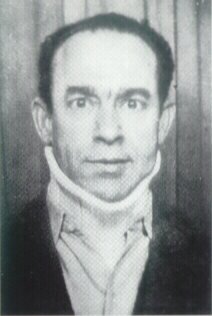FRENCH INVESTIGATOR IN MOROCCO OVER BEN BARKA
At the same time as the French judge Patrick Ramael met his Moroccan judicial counterpart in Casablanca on Monday probing the 1965 disappearance and suspected murder of opposition leader Mehdi Ben Barka, a Moroccan panel, which is due this week to publish the findings of an enquiry into rights violations in the north African kingdom before 1999, announced it had found the bodies of 106 more victims of repression.

Ben Barka, a charismatic foe of Morocco's late king Hassan II, vanished after being kidnapped outside a Paris restaurant in 1965. The affair remained shrouded in secrecy for 40 years despite appeals launched in both countries.
Under the current monarch Mohammed VI, Hassan's son, the Moroccan and French justice ministries reopened the case, while an Equity and Reconciliation Panel (IER) has been amassing details of other disappearances, killings and torture during the so-called "leaden years", 1956-99.
Ramael declined to make any comment upon his arrival earlier Monday, but sources close to the case in France said he plans to question several people whom his predecessors were unable to interrogate before Mohammed VI began political reforms.
The Equity and Reconciliation Panel said that it had found 99 people buried in a cemetery in the the southern town of Fès and seven others in a different graveyard, known to have been victims of a 1990 crackdown after labour activists called a strike. The 99 of were found in Bab el Guissa cemetery and 7 others in the Abi Bakr cemetery, but the victims' identities were not revealed.
"We can't, however, identify the bodies," said an Equity and Reconciliation Panel statement, adding they had been buried in secret in isolated parts of the cemeteries.
During the unrest in December 1990, officials said five people were killed, though press reports put the toll at 49. A total of 150 people were charged and many were convicted of criminal offences.
Hassan II then spoke of trouble caused by "criminal bands and thieves, drug traffickers and deliquents who took advantage of the strike."
The Ben Barka affair has been raised many times as one of the most prominent of the "leaden years". Ramael's probes have allegedly implicated key former government members and top security officials amid claims of a joint cover-up by Rabat and Paris. The Moroccan monarch was an ally not only of France but of the United States during the Cold War and its aftermath, and though Morocco is not among the oil-rich nations of north Africa, its regime was considered staunch, stable and important to Western interests in the Arab world and Africa.
In 2003, the Socialist Union of Popular Forces (USFP) party founded by Ben Barka filed a civil suit for justice. Then in October 2004, French's national defence authorities declassified secret files the French judiciary had been seeking in the case.
The Equity and Reconciliation Panel is expected to release its findings on Wednesday in the capital Rabat after 18 months of hearings and collecting evidence from the "leaden years" from plaintiffs, victims of torture and the families of political activists.
A Moroccan legal source said Ramael had arrived for "a first contact to get the process going in cooperation with the Moroccan judiciary". A French lawyer for Ben Barka's family, Maurice Buttin, is due in Rabat on Tuesday.
The New York-based Human Rights Watch has issued a statement urging Moroccan authorities "to bring to justice the people (the Equity and Reconciliation Panel ) has identified as having committed serious human rights violations when there is enough proof".
The international watchdog appealed to Morocco's rulers "to asbtain from decreeing any amnesty ... that would exempt from legal proceedings people implicated in 'disappearances' or other serious rights violations. Any measure of clemency should be made once individual responsibilities are clear."
HRW called for the punishment or sacking of anyone implicated by the IER who is still in a position to violate human rights.
LINKS: See related story: Positive moves on human rights in Morocco
Tags: Morocco, Fès, history, Ben Barka

No comments:
Post a Comment